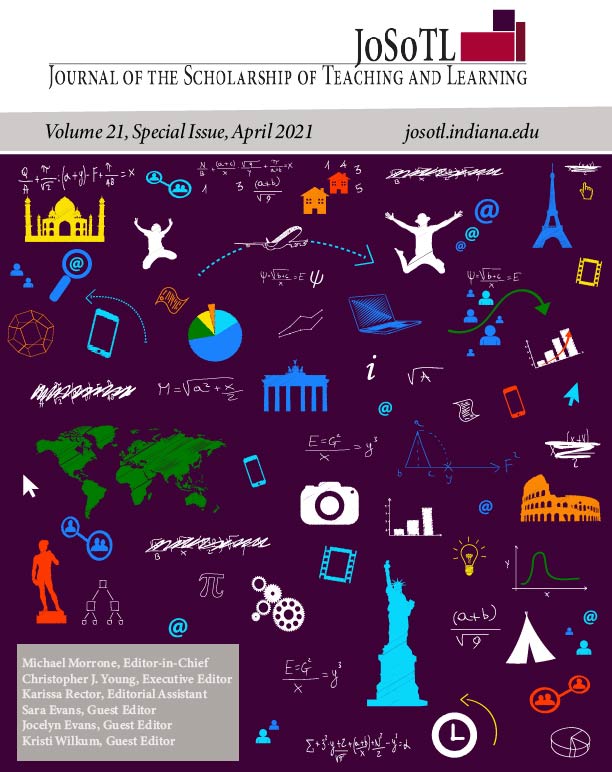QEP is HIP: A Case Study Implementing an Institution-wide Undergraduate Research Community of Practice for a Small, Private College Setting
Main Article Content
Abstract
Piedmont College’s quality enhancement plan (QEP) emphasizes a developmental and progressive integration of high-impact practices (HIPs) into the academic and social fabric of the institution. The QEP is HIP initiative provides students with multiple opportunities to deepen learning and leadership skills, which leads to improvements in student success, persistence, and retention. However, the institution grappled with how to effectively engage students in effective, meaningful research-based experiences. During the 2nd year of its QEP implementation, a campus-wide undergraduate research symposium was launched to showcase students’ research and creative inquiry in an effort to (a) gain full institutional participation in this crucial HIP and (b) offer the underserved student population (defined as ethnic minority, Pell-eligible, and first-generation students) an opportunity to participate in professional socialization and experience faculty mentorship. This case study shows the initial influences of this HIP on student success (in terms of grade point average [GPA]), students’ perceptions of their own learning, students’ persistence (measured with the Grit Scale), and retention from the 2018–2019 to the 2019–2020 academic year. Specifically, this study compared students who presented their research at the undergraduate research symposium to students who did not. While the immediate influence of this HIP on student persistence/perseverance (grit scores) remains undetermined, the retention rates and GPA appear to have been higher for students who presented, in both the dominant and underserved populations. Furthermore, students reported an increase in perceptions of their own learning. These findings are significant and affirm that undergraduate research communities can be considered a HIP for students, including those of underserved populations.
Downloads
Article Details

This work is licensed under a Creative Commons Attribution 4.0 International License.
- Authors retain copyright and grant the Journal of the Scholarship of Teaching and Learning (JoSoTL) right of first publication with the work simultaneously licensed under a Creative Commons Attribution License, (CC-BY) 4.0 International, allowing others to share the work with proper acknowledgement and citation of the work's authorship and initial publication in the Journal of the Scholarship of Teaching and Learning.
- Authors are able to enter separate, additional contractual agreements for the non-exclusive distribution of the journal's published version of the work (e.g., post it to an institutional repository or publish it in a book), with an acknowledgement of its initial publication in the Journal of the Scholarship of Teaching and Learning.
- In pursuit of manuscripts of the highest quality, multiple opportunities for mentoring, and greater reach and citation of JoSoTL publications, JoSoTL encourages authors to share their drafts to seek feedback from relevant communities unless the manuscript is already under review or in the publication queue after being accepted. In other words, to be eligible for publication in JoSoTL, manuscripts should not be shared publicly (e.g., online), while under review (after being initially submitted, or after being revised and resubmitted for reconsideration), or upon notice of acceptance and before publication. Once published, authors are strongly encouraged to share the published version widely, with an acknowledgement of its initial publication in the Journal of the Scholarship of Teaching and Learning.
